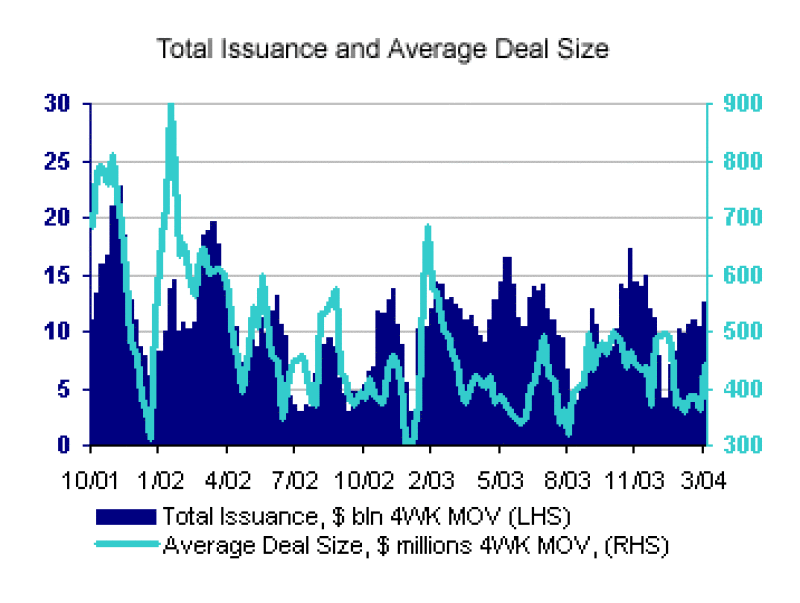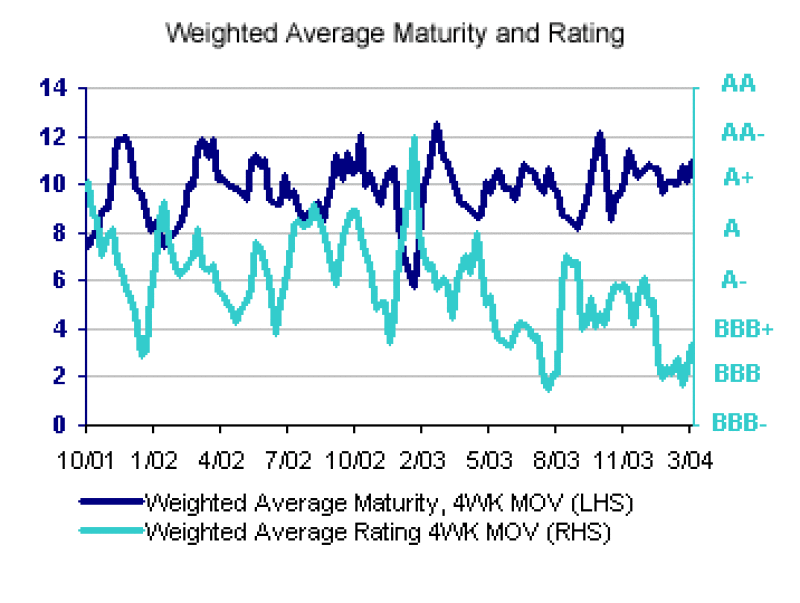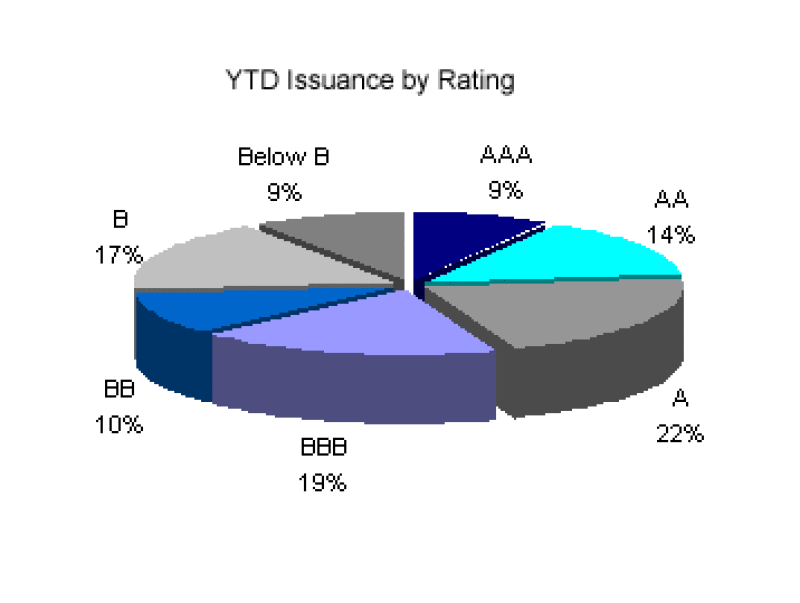


\
CreditSights: Foreign Investors Scale Back
When we last reviewed foreign purchases, the most recent data available was for the month of December and the numbers highlighted that 2003 had been a year in which foreign demand reached record levels. But even as we noted the nearly 50% increase in demand year-over-year, we pondered whether offshore investors would fall prey to the same malaise that was inhibiting purchases among domestic investors during the first two months of the new year.
Our first glimpse at January 2004 foreign purchase data suggests this may be so. According to data from the U.S. Treasury, net foreign purchases of U.S. corporates were $13 billion in January 2004. This is sharply lower than the $20.4 billion recorded during December and compares unfavorably with the $22.4 billion monthly average that was achieved during the second half of last year. In fact, it is the lowest level of monthly demand seen since the market started rallying in November 2002. Further, the drop is made even more notable by the fact that purchases of other asset classes were stronger during the month. Offshore purchases of Treasuries during January spiked to $46.9 billion, up from $29.8 billion in December and agencies, which had lately become an investment pariah, saw their strongest level of demand in eight months. There was $27.6 billion of agency purchases in January versus $17.3 billion in December and a monthly average of just $8.8 billion in the second half of 2003. The flows indicate that foreign appetite for U.S. dollar-denominated assets was robust enough; it was just demand for corporates that seemed to be lacking.
One potential reason for the sharp drop from December could be seasonality. In the last decade, foreign investors undertook an average of 6% of their annual purchases in January, a monthly seasonal low. The level of demand typically picks up during the year and peaks at 11% in June. It should also be noted that 2003 was a record year, with foreign purchases of corporates 49% higher than levels seen in 2002. If 2004 follows the average seasonal patterns, total foreign purchases will be approximately $221 billion, which is 16% higher than 2002 and only 4% lower than 2001. When drawing conclusions from this month's data, we are wary of the low January seasonal effect and the fact that we saw record foreign purchases in 2003.
The question that is often raised with regard to this data is, what impact would a pullback in foreign demand have on the cost of capital to the U.S. corporate sector? The concern is legitimate given the consistent growth in demand in recent years, as a broader investor base with appetite for corporate bonds has added to an already favorable trend in interest rates, fostering an overall reduction in the cost of capital. Demand has grown so substantially that, according to Federal Reserve data, offshore investors now hold nearly one fifth of outstanding U.S. corporate debt.
We believe that foreign demand for corporates has been primarily fueled mainly by retirement savings vehicles looking for suitable long-term investments, and only to a lesser extent by speculative investors. In this regard, the factors influencing foreign demand are largely reflective of those that govern domestic demand. In that respect, perhaps the simplest explanation for the drop in demand in January is that the significant spread compression that had been witnessed in 2003 left the sector looking vapid in comparison to other asset classes and as the mindset was focused on asset allocation for a new year, other alternatives looked more attractive.
Analysis by CreditSights, Inc., an independent online credit research platform. Call (212) 340-3888 or visit www.CreditSights.com for more information.






